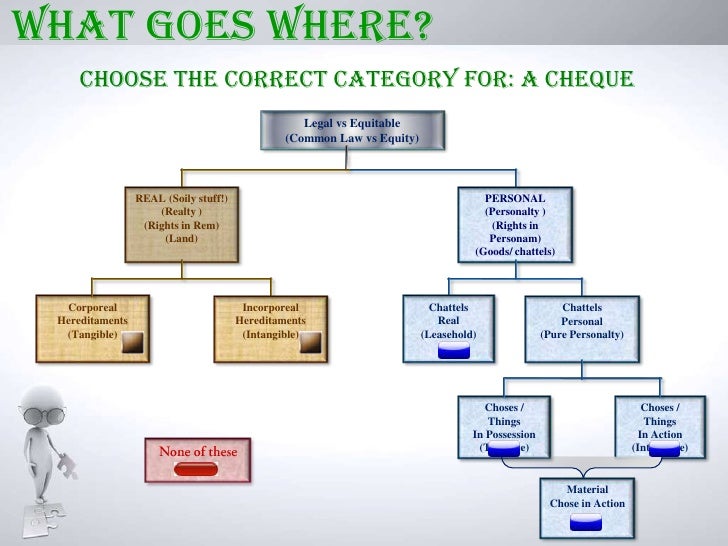Demise — How did "dismiss, put away" semantically shift to mean 🡲 a transfer of property, or the grant of a lease?
What semantic notions underlie "dismiss, put away" (desmetre) 🢂 with transferring property or granting a lease (demise)?
This semantic shift befuddles me, because —
-
Humans "dismiss, put away" merely physical objects that they dislike. "dismiss, put away" has a negative connotation.
-
"dismiss, put away" refers to tangible goods. In the first diagram below, see Property 🢂 personal property 🡺 chattels personal 🡲 choses in possession.
No native English speaker would say that they "dismiss, put away" real estate!


DEMISE: A transfer, usually by the grant of a lease.
Antonia Layard, Thompson's Modern Land Law (8 edn, 2022, OUP), page 543.
demise (n.) [on Etymonline]
mid-15c., "transference of property, grant of land for life or a period of years," via Anglo-French
from Old French demis, fem. past participle of desmetre "dismiss, put away" (Modern French démettre),
from des-"away" (from Latin dis-)
+ metre "put," from Latin mittere "let go, send" (see mission).Originally especially "a conveyance of an estate by will or lease," then "transfer of sovereignty," as by the death or deposing of a king (1540s). The sense was transferred to "death" (as the occasion of such a transfer) by 1754, at first especially the death of a sovereign or other important person, but also as a euphemism for "death."
1 answer
Remember that lawyers love to put their own stamp on language, and hold on to fanciful usages while pretending they are the clearest, most common parlance.
https://dictionary.thelaw.com/demise/ is quite useful here, but assumes a crucial element: in the British monarchy, the Crown is the original owner of everything. The "conveyance" of a lease is the figurative "sending away" (demis) of some of the rights that were themselves inherited or received from the Crown. When the lease ends, the rights come back to the current owner.
Does that help? They don't mean "putting away" but rather "sending away" the rights.




















3 comment threads